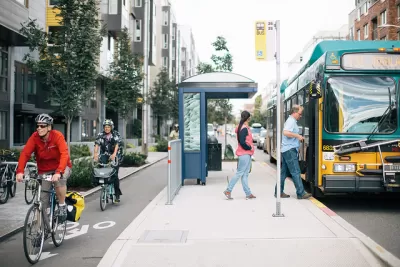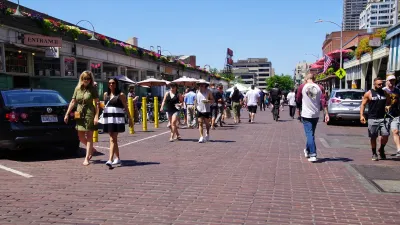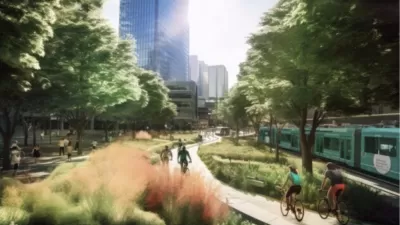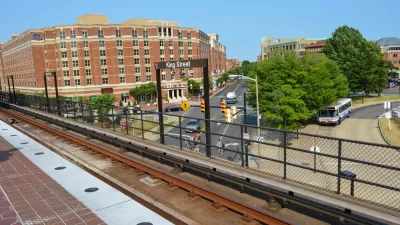Seattle has achieved unparalleled success in allowing residents the option to choose not to own a car.

"When it comes to car ownership, Seattle has finally turned a corner," according to an article by Gene Balk.
"Census data released last month shows the city’s car-ownership rate has dropped dramatically in the past several years. In the new estimates, about 81% of Seattle households owned at least one vehicle in 2018 — that’s the lowest rate since the 1980s," reports Balk.
The city of Seattle's drop in car-ownership is the biggest among the 50-most populous cities in the country, and by a wide margin, according to Balk. Granted, U.S. cities are setting a low bar of performance on this metric: only 11 of those 50 cities achieved any decline since 2010.
A follow up article by Patrick Taylor calls the news about Seattle's declining rate of car ownership a "victory for the urbanist vision."
FULL STORY: Seattle’s rate of car ownership saw the biggest drop among big U.S. cities — by far

Manufactured Crisis: Losing the Nation’s Largest Source of Unsubsidized Affordable Housing
Manufactured housing communities have long been an affordable housing option for millions of people living in the U.S., but that affordability is disappearing rapidly. How did we get here?

Americans May Be Stuck — But Why?
Americans are moving a lot less than they once did, and that is a problem. While Yoni Applebaum, in his highly-publicized article Stuck, gets the reasons badly wrong, it's still important to ask: why are we moving so much less than before?

Using Old Oil and Gas Wells for Green Energy Storage
Penn State researchers have found that repurposing abandoned oil and gas wells for geothermal-assisted compressed-air energy storage can boost efficiency, reduce environmental risks, and support clean energy and job transitions.

Updating LA’s Tree Rules Could Bring More Shade to Underserved Neighborhoods
A new USC study finds that relaxing Los Angeles’ outdated tree planting guidelines could significantly expand urban tree canopy and reduce shade disparities in lower-income neighborhoods, though infrastructure investments are also needed.

California's Canal Solar Projects Aim to Conserve Resources and Expand Clean Energy
California’s Project Nexus has begun generating electricity from solar panels installed over irrigation canals, with researchers and state agencies exploring statewide expansion to conserve water and boost clean energy production.

HHS Staff Cuts Gut Energy Assistance Program
The full staff of a federal program that distributes heating and cooling assistance for low-income families was laid off, jeopardizing the program’s operations.
Urban Design for Planners 1: Software Tools
This six-course series explores essential urban design concepts using open source software and equips planners with the tools they need to participate fully in the urban design process.
Planning for Universal Design
Learn the tools for implementing Universal Design in planning regulations.
Heyer Gruel & Associates PA
City of Moreno Valley
Institute for Housing and Urban Development Studies (IHS)
City of Grandview
Harvard GSD Executive Education
Salt Lake City
NYU Wagner Graduate School of Public Service
City of Cambridge, Maryland





























